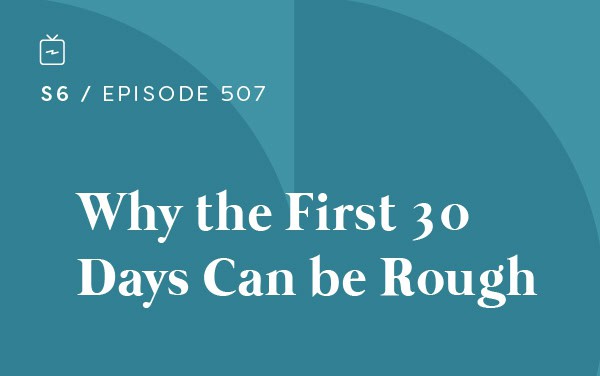Podcast: Play in new window | Download
Subscribe to the Recovery Elevator Podcast Apple Podcasts | RSS | More
Episode 507 – Why the First 30 Days Can be Rough
Today we have Jason. He is 56 years old and from Minneapolis, MN. He took his last drink on December 31st, 2021.
Sponsors for this episode:
Better Help – code ELEVATOR for 10% off of your first month
[01:06] Intro:
In today’s episode you are going to hear Jason say that he doesn’t identify as an alcoholic. How many alcoholics do you think have been interviewed on the podcast? Paul says the answer is zero.
Zero because whenever people hear the word alcoholic, the first things that come to mind are homeless, living under a bridge, brown paper bag. Zero guests have fit this description.
Studies show that only 5% of alcoholics are actually homeless, living under a bridge, etc. However we are all walking the same path regardless of how far it takes us.
It’s never too late to get help, and we’ve got your back. The real villain here is alcohol, not the addict. In 2024, you can be alcohol-free, you can be sober, you can be sober curious, you can be an alcoholic in recovery. At the end of the day it’s all about getting honest with yourself.
[04:16] More thoughts from Paul:
Drinking can be challenging in the first 30 days. Paul shares with us a piece about this that uses an analogy comparing our brain and neurotransmitters to toy boxes and toys.
During recovery, our brain is resetting itelf now that the alcohol is halted. This will take time. A couple of week to a couple of months. Go slow, be kind to yourself and let the body heal. Your part is not drinking, and the universe solves the other part which is time.
[07:36] Paul introduces Jason:
Jason has lived in Minnesota all of his lfe, currently in Minneapolis. He is married with two sons, 14 and 12. He works in sales. Jason says for fun, he is getting into golf and he is a pilot who enjoys flying for fun as well as for business.
Jason says he had his first drink as a junior in high school. It wasn’t a remarkable event but he ended up becoming a typical drinker: parties and weekends, etc. He got married when he was 21 to his first wife, and she did not drink. Therefore Jason didn’t drink much during his 20s. The company he worked in sales for, had a big drinking culture that Jason started to get more involved in. Around the same time his marriage wasn’t working out and he found himself divorced and drinking more often afterwards. At the time it didn’t feel out of control although in hindsight Jason feels it was excessive – almost daily and every weekend complete with hangovers.
In his 40s Jason met his current wife who is a social drinker. His drinking continued, but he did begin to question it. He began to try a lot of methods of moderations, some of them worked for him but it became exhausting after doing it for about five years. On December 17th of 2021, he had decided he was going to quit. He says he drank a lot for the first week or so after that as a reminder to himself of how bad it was.
On New Year’s Eve, Jason had two beers and ended up dumping out half of his third. He was done. Jason said the first month went well and the biggest thing he missed was having something to look forward to. Once he made the decision it wasn’t that hard for Jason.
Jason shares that he read a lot and listened to podcasts which really helped him. He mentions the book Almost Alcoholic which helped him identify that he was in the middle ground with his drinking. Jason has had no desire to return to drinking and his cravings were few and far between over the last nearly three years. Going forward, Jason wants to find more hobbies and things he enjoys doing with his kids. He enjoys the subtle calm that is in his life now.
Jason’s parting piece of guidance: you don’t have to identify as an alcoholic for quitting to be the best option for you.
Recovery Elevator
We took the elevator down, we got to take the stairs back up.
I love you guys.
We can do this.
Café RE – promo code OPPORTUNITY waives the set up fee



